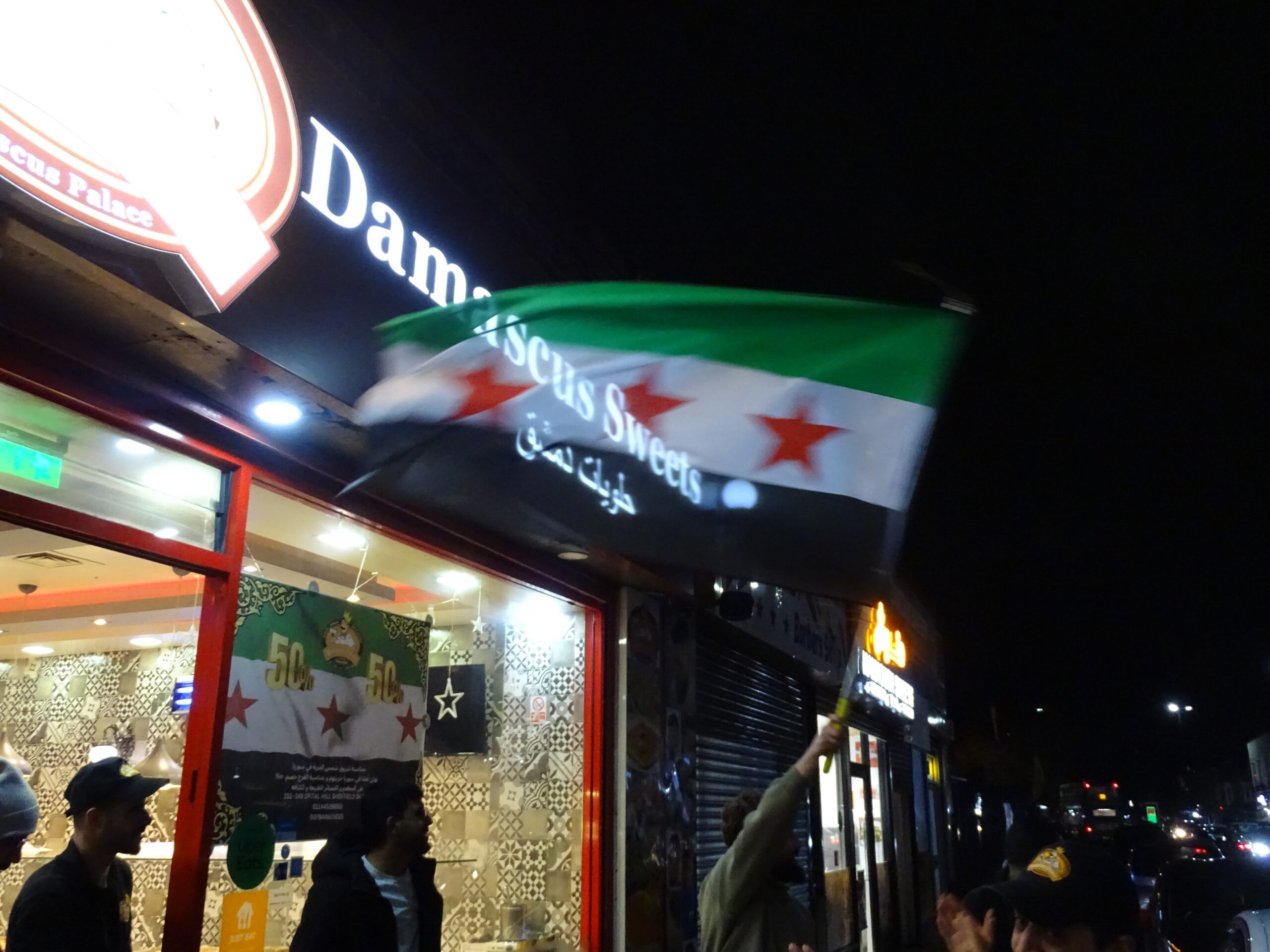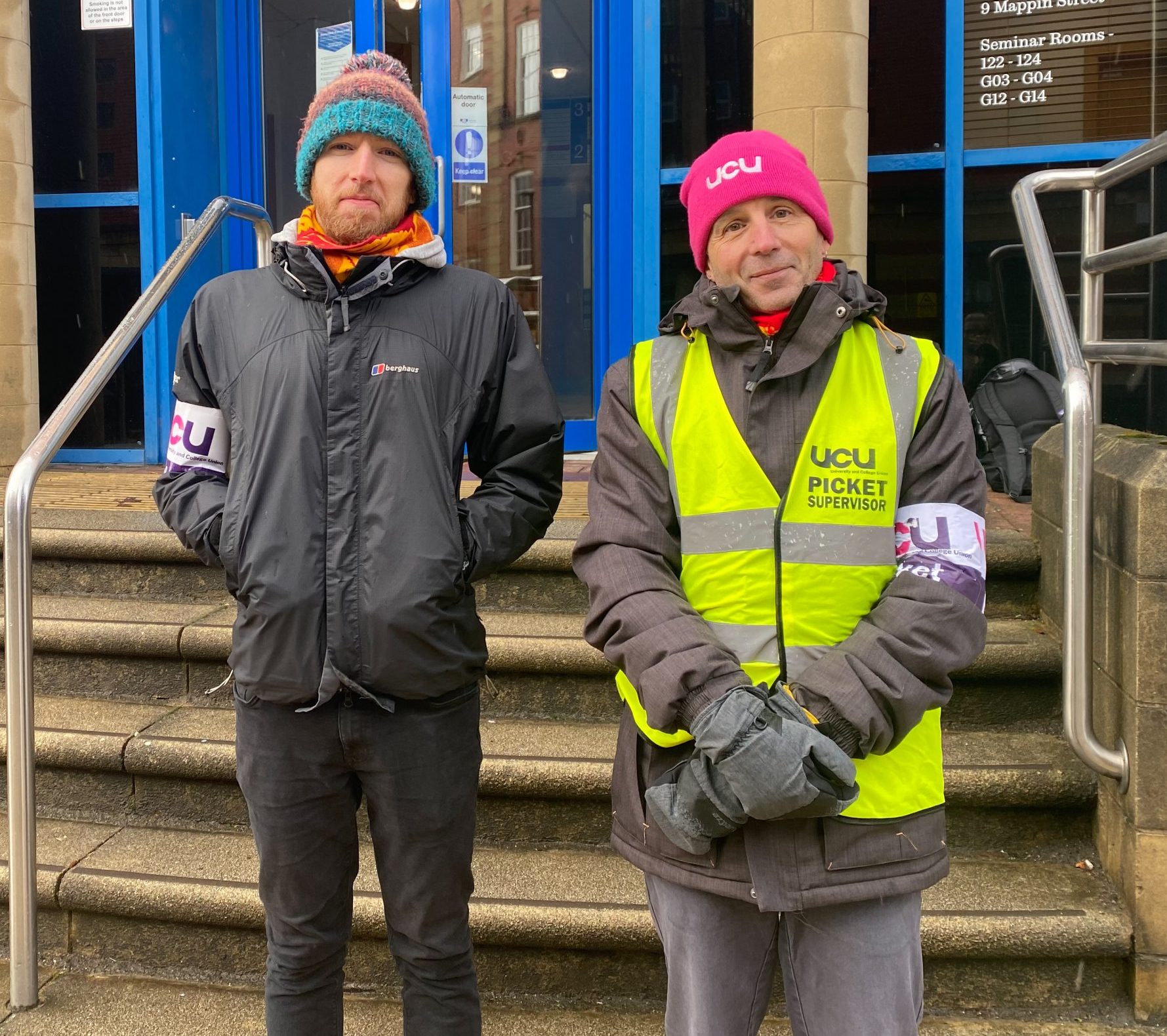In the wake of the Assad dictatorship’s dramatic collapse on 8 December, Syrians living and working in Sheffield are ‘euphoric’ and hoping for a brighter future.
Members of the Syrian community gathered outside Damascus Bakery & Sweets in Spital Hills on Tuesday to celebrate and to honour Syria’s dead, waving the Syrian revolutionary flag as the bakery offered customers a 50% discount.
For 14 years, Syria has been torn apart by a complex civil war, marked by foreign meddling and brutal atrocities. The uprising began in April 2011, when protests in the south of the country were met by the regime with extreme violence.
One of its first casualties was Hamza Al-Khateeb, a 13-year-old boy tortured to death by security forces.
“I still see his face,” said Kenan Alrahabi, an aerospace engineering student at the University of Sheffield.
“Even though I didn’t have any personal connection to him, every Syrian has him in his heart.”
Kenan was born in the UK to a Syrian family. He was 5 years old when the war began, and has been protesting the Assad government ever since.
“When I speak to my family they always tell me it’s not a civil war – it’s a genocide” he said, comparing Bashar al-Assad to the Cambodian dictator Pol Pot.
Kenan’s father made several dangerous trips to rebel-held territory in Syria during the conflict, as part of a medical aid programme for civilians.
They were separated for a decade from family members in Syria, several of whom were detained and tortured in the regime’s secret prison system; at least one died there.
He remains jubilant at the regime’s sudden, shocking fall to a lightning rebel offensive, spearheaded by the Islamist group Hay’at Tahrir al-Sham (HTS): “If you’d asked me a year ago, even a month ago, we’d have never ever seen this coming.”
He said other Syrians in South Yorkshire share in this exhilaration, at the return of freedom of speech, and freedom from the horrors of Assad’s jails.
“We all have the same idea that we can finally see a future in our home country”.
Kenan is thankful for Britain’s support for Syrian refugees, but hopes that the British government will do more – including moving beyond stereotypes about ‘Islamist’ movements to actually engage with the new interim government, and judge it by its actions.
HTS began life as an al-Qaeda affiliate with a bloody track record, but also fought against the jihadist empire of ISIS and offered stable, effective government in its territories. Its leader has promised to guarantee the safety and participation of religious minorities such as Christians, Druze and Alawites in the new Syria.
He also believes that the UK must condemn the recent Israeli airstrikes on Syrian military sites and occupation of Syrian land.
He said: “They’ve been bombarding every inch of infrastructure that we have, which is completely illegal and unprecedented.” Most Syrians, he says, identify their struggle closely with that of the Palestinians.
Beyond this, Syria’s future is not yet settled. Fighting is ongoing in the country’s northeast – between the SDF, the Kurdish-led coalition which controls the region, and the SNA, a militia backed by the Turkish government. Painful questions of economic reconstruction and a political settlement remain in a country scarred by warfare.
Kenan remains optimistic, and hopes to finally return to Syria in the near future. He points to millennia of coexistence between Syrians of different sects and languages before the dictatorship, and his relatives’ experience in the cosmopolitan city of Damascus.
He said: “There is an element of fear – but it’s outweighed by the immense hope that we have.”
Featured image credit: Yassin El-Moudden




